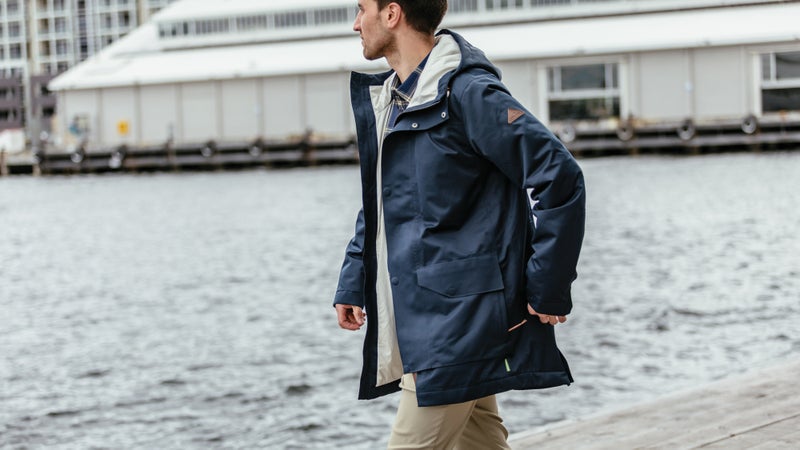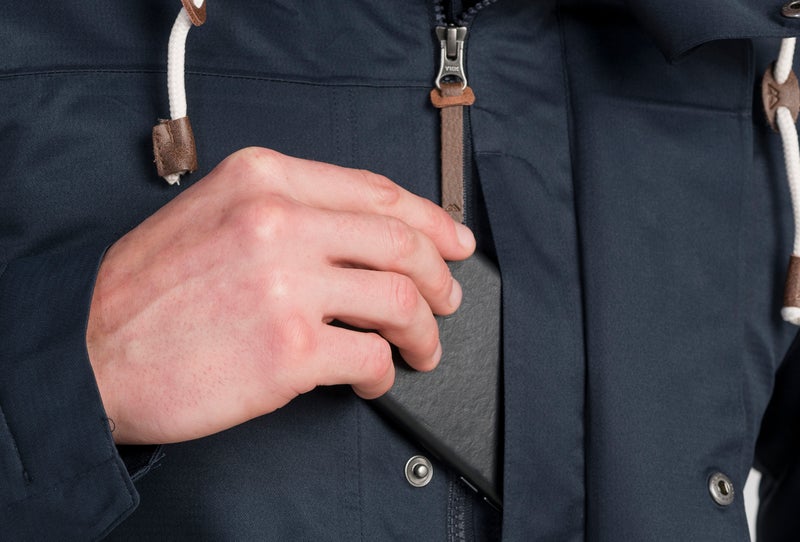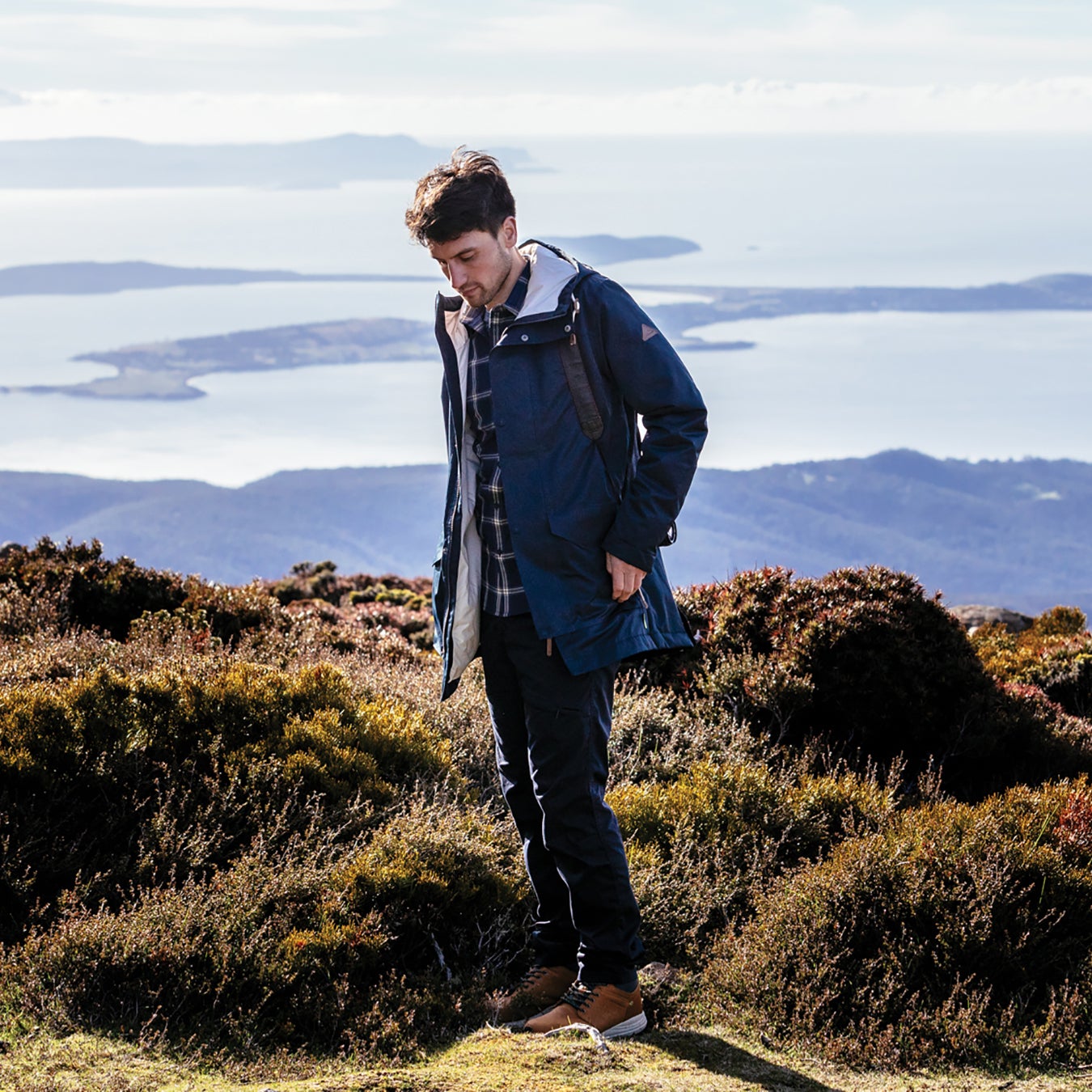Kathmandu Is Now a Certified B Corp
Here's��why the New Zealand-based gear brand's��sustainability certification matters.��If there’s one thing we can all agree on, it’s that the sustainability movement sweeping through the outdoor industry is a very good thing. More efficient supply chains, less packaging, and gear made from recycled and renewable materials are all no-brainers for an industry centered around enjoying nature. But finding outerwear that’s sustainable, comfortable, and high-performing has proven to be easier said than done, especially in the U.S., where only a handful of brands have taken up the call.��
Thankfully, that’s changing fast. And a brand you’ve likely never heard of—New Zealand–based —is at the leading edge. While Kathmandu is a relative newcomer to the North American market, it’s one of the most progressive gear makers on the planet. It started in a shed beneath Mount Cook three decades ago. Today it’s the eighth-largest outdoor apparel company in the world, making everything from tents and packs to expedition apparel and adventure travel clothing.��
From a competitive marketplace viewpoint, the fact that Kathmandu is now selling its wares in North America is a plus. But the brand’s —it was one of the first to upcycle plastic bottles into clothing and is now the second-largest apparel maker in the world to earn B Corporation status—is an even bigger boon. And its new t is a prime example of how Kathmandu blends performance with sustainable design.

While the only recycled component in many jackets is the face fabric, the lightly insulated and urban-styled Stockton incorporates recycled and renewable materials at every level. “Our goal,” says Ben Ryan, Kathmandu’s general manager of product, “was to reduce the overall impact of the Stockton. It took years of dedicated efforts in sourcing, verification, and product testing to pull that off.” The face fabric is made entirely from post-consumer plastic bottles and sourced from a company called Repreve, the world’s leading manufacturer of recycled fabric. The breathable waterproof membrane also happens to be bio-based, a departure from typical membranes that are fossil-fuel-based. And the insulation and lining are also made from recycled materials.��
Better still, the Stockton is unlike any other urban raincoat on the market. It doesn’t have the crinkly feel of a traditional hard shell, and the light layer of insulation means you can wear it over your work clothes—the coat is long enough to cover your mid-thighs—whether the rainy weather is hitting in November or February.��
To date, Kathmandu has turned well over five million plastic bottles into garments.
As impressive as the Stockton is, it’s just one example of the sustainability practices that form the foundation of everything the brand does. To date, Kathmandu has turned well over five million plastic bottles into garments. One hundred percent of its down is responsibly sourced, and this year the company is hoping to match that achievement with its responsibly sourced cotton. Kathmandu also operates three five-star certified green buildings, hasn’t given a customer a plastic shopping bag since 2011, and supports reforestation through carbon offsets.
Not surprisingly, Kathmandu takes social responsibility just as seriously. The brand is a Fair Labor Association member, and this year it received an “A” rating from the Ethical Fashion Report. As a community partner, Kathmandu has covered the cost of thousands of dental treatments in Nepal and contributed hundreds of thousands of dollars in earthquake aid to that same nation after the 2015 earthquakes.��

Doing its best to take care of the planet—and one another—is just how Kathmandu rolls. “It’s ingrained in how we do our jobs,” says Ryan. “Sustainability isn’t some mysterious side department. It’s part of every conversation, whether we’re opening a new facility and we’re talking about protecting workers’ rights, lowering and eventually eliminating our dependence on chemical water repellents, or—and this part is crucial—making our products last longer.”��
��
As Kathmandu's Global Ambassador Tim Jarvis often says, “The strength of the brand is in our employees and customers experiencing things for themselves, but also contributing to the world as we want to see it.”
The gear has changed, but the adventure hasn't. Since 1987, Kathmandu��been designing gear to take on New Zealand, and the world.��Our fans have helped us by being our travel experts, putting the gear through the harshest conditions, and have helped shape who we are today through their honest feedback. It's about the journey more than the destination. We are��.

